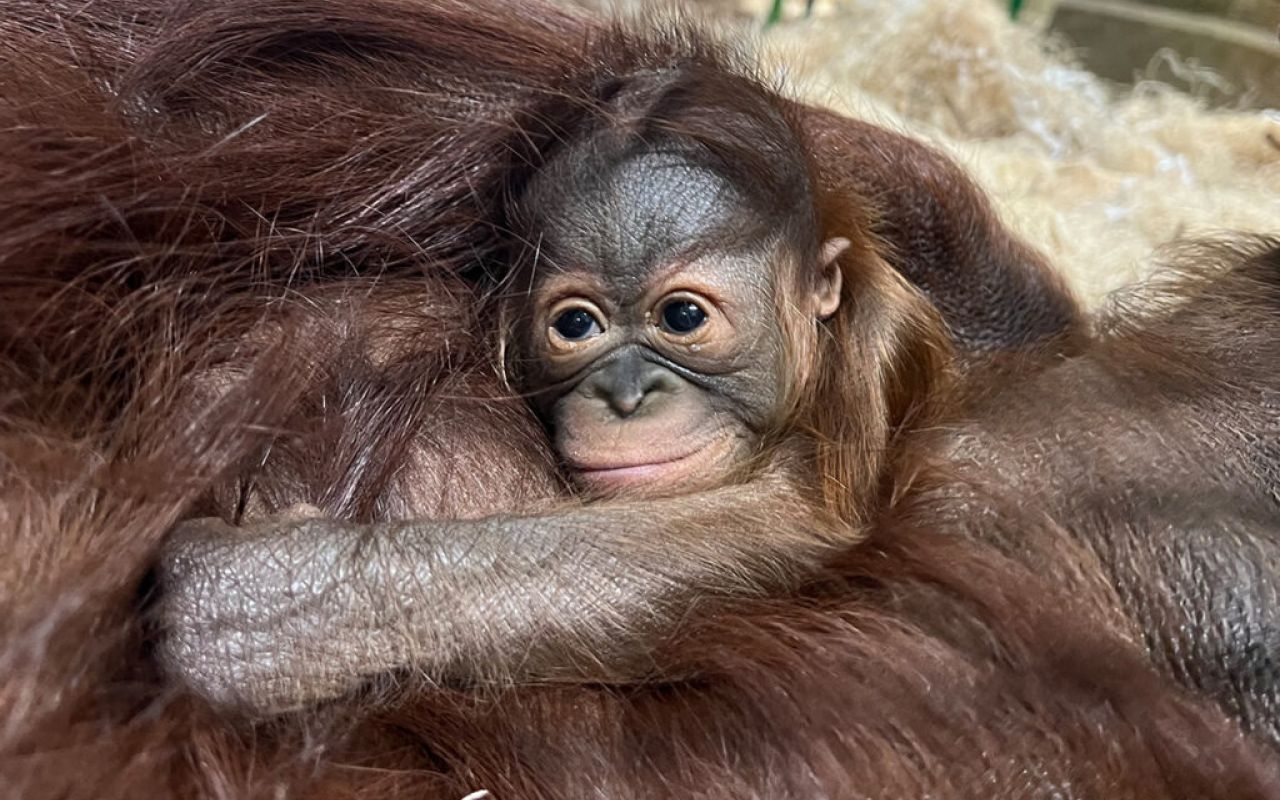This adorable, critically endangered species was just born at the Columbus Zoo

Baby primates are quite possibly the cutest types of baby animals, and now there’s a very special little one who has joined the Columbus family, with huge round eyes and a head full of red hair.
The Columbus Zoo and Aquarium is celebrating the arrival of a female baby Bornean orangutan, which is the first of this critically endangered species born at the Zoo in over 60 years.
The mating of the orangutans, Khali (mom) and Sulango (dad), who are the baby’s parents, was intentional and recommended by the Orangutan Species Survival Plan. This newest addition maximizes the genetic diversity and increases the population sustainability.
This is a big deal for a lot of reasons – orangutans have the longest interbirth interval (usually 6-9 years) and the longest infant dependency of any non-human animals, so they don’t tend to have many babies. Also, the last orangutan birth occurred at the Columbus Zoo in 1962, making this birth particularly important!
“Not only is this adorable baby already stealing our hearts with her head full of reddish-brown hair and incredible, soulful eyes, but her birth is extremely significant for her species. We look forward to inviting our guests to come see her in the near future so they, too, can see the hope that she represents and be inspired to take action to help protect orangutans’ future,” said Dr. Jan Ramer, Senior Vice President of Animal Care and Conservation at the Columbus Zoo and Aquarium.
The name of the baby has yet to be announced, but she was born on Tuesday, November 28th at 12:34 a.m. Her mother, Khali, is a first-time mom, and Khali is very attentive to her baby’s needs, spending time grooming and snuggling her. Khali also brings her baby over to the zoo’s care team and keepers for visual examinations and is continuing to participate in training sessions, which is just all around so adorable that I almost cried while typing that.

BROUGHT TO YOU BY
The baby’s father, Sulango, is 30 years old, and showing interest in his baby, all the while giving Khali the space she needs. He’s protective, yet gentle and patient, remarked the Columbus Zoo.
If you’re wondering how and why orangutans have become critically endangered, it’s unfortunately due to their habitat declining by more than 80 percent because of logging and the clearing of trees for palm oil plantations (think of The Lorax). We can all help orangutans, who by the way, share 97% of their DNA with us humans, by purchasing items that are made from sustainably-sourced palm oil.
The orangutans’ indoor viewing habitat in the Zoo’s Australia and the Islands region is currently closed to guests while the newly-expanded orangutan family continues to bond. For additional updates about the orangutans, the Columbus Zoo’s conservation initiatives, participation in projects such as the Great Ape Heart Project, events, and more, be sure to follow the Zoo’s social media accounts on Facebook, Instagram, and TikTok, and visit ColumbusZoo.org.
Want to read more? Check out our print publications, (614) Magazine and Stock & Barrel. Learn where you can find free copies of our newest issues here!
BROUGHT TO YOU BY



